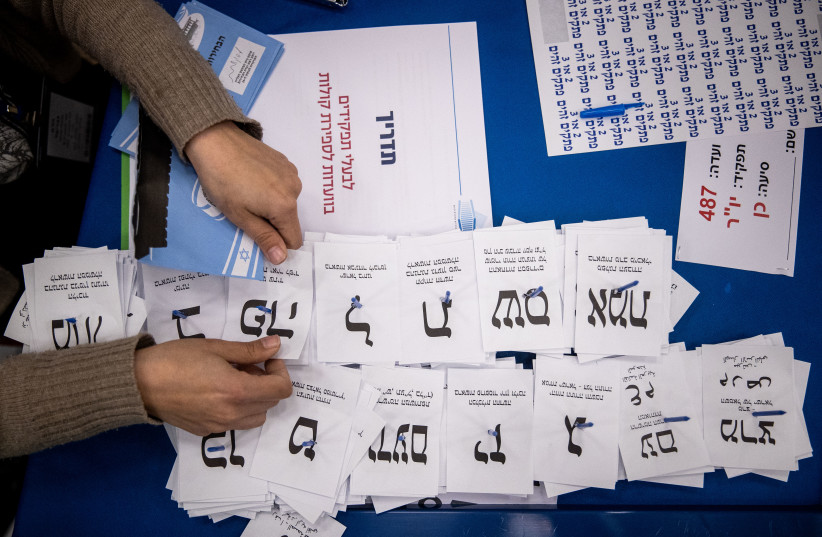What is the election on Tuesday about? Why are Israelis going to the polls yet again?
Some will say it is about what the past four elections seem to have been focused on: the perennial yes-Netanyahu or no-Netanyahu question.
Others will tell you it is about the constant fight between Right and Left, even though the split of the two political camps has for years not been based on the classic fault lines of the past. The proof is that Naftali Bennett, a consistent opponent of a Palestinian state, led a government with Meretz and Labor. When those old issues are no longer important, anything is possible.
Rather, it seems that this election is about something deeper – about the kind of Israel we want to see here in this land. This is not a trivial question. It comes at a unique time in Jewish and Israeli history. In just six months, Israel will mark 75 years of statehood, and the country has never been stronger.
Just look at the past week from a military and diplomatic perspective: There were three alleged strikes in Syria, a successful raid in Nablus, President Isaac Herzog met at the White House with President Joe Biden, and Defense Minister Benny Gantz went to Ankara to meet with Turkish President Recep Tayyip Erdogan.

Are there threats? Of course. But Israel, just a few months shy of its 75th Independence Day, has power unimaginable just a few years ago.
Economically, the country is also in a place that – not so long ago – did not seem possible. Is there inflation? Yes. Are we on the cusp of a possible global recession? Possibly. But when you compare Israel to other countries, our national currency is strong, unemployment is extremely low and we have unique energy independence.
Who would have believed five years ago that Israel would one day supply gas to Egypt and Jordan? Who would have thought that the president of the European Commission would come to Israel and not say a word about the so-called “occupation” and only talk about how she can get some of Israel’s gas to Europe?
And then there is society. Are we divided? Yes. Are elections corrosive and do they polarize sectors and different minority groups? Also yes. But our social cohesion is something that other countries look at with envy. We have our problems, but people know that if there is one place in the world where citizens look after one another, it is here in Israel.
What does this all amount to?
What all this translates into is a far deeper question that the election will not necessarily answer: What are we going to do with this military, diplomatic, economic and social strength? How are we going to leverage it, and more importantly ahead of Tuesday, what vision do the different parties have for how to take advantage of this power and stature to propel Israel forward in ways not yet imaginable?
It is a question that ties into the two realistic options for the outcome of this election: Will Benjamin Netanyahu get the 61 seats that have eluded him through the four previous elections, or will Israel roll on to another election, a sixth vote that would be held sometime around the upcoming Independence Day in April.
There is no doubt that a government of 61 led by Netanyahu including Itamar Ben-Gvir and Bezalel Smotrich would aim to change Israel. It would look to reform the rule of law, the courts, the judicial system and the ways Jews and Arabs get along in this land. With only one year, they would have the potential to change the country as we know it.
For some people, that is exactly what they want. They seek that change and they want to see Israel’s power used for that exact purpose; not just to help Netanyahu get off from his trial, but to more fundamentally shift the balance and separation of powers in Israel.
This is what the Tuesday election is about. It is not just about Netanyahu or Yair Lapid. It is not about the Ra’am Party being in the coalition or not. It is about the type of country we want to have when celebrating three-quarters of a century of statehood and dreaming about the centenary. That is what we are voting on.
